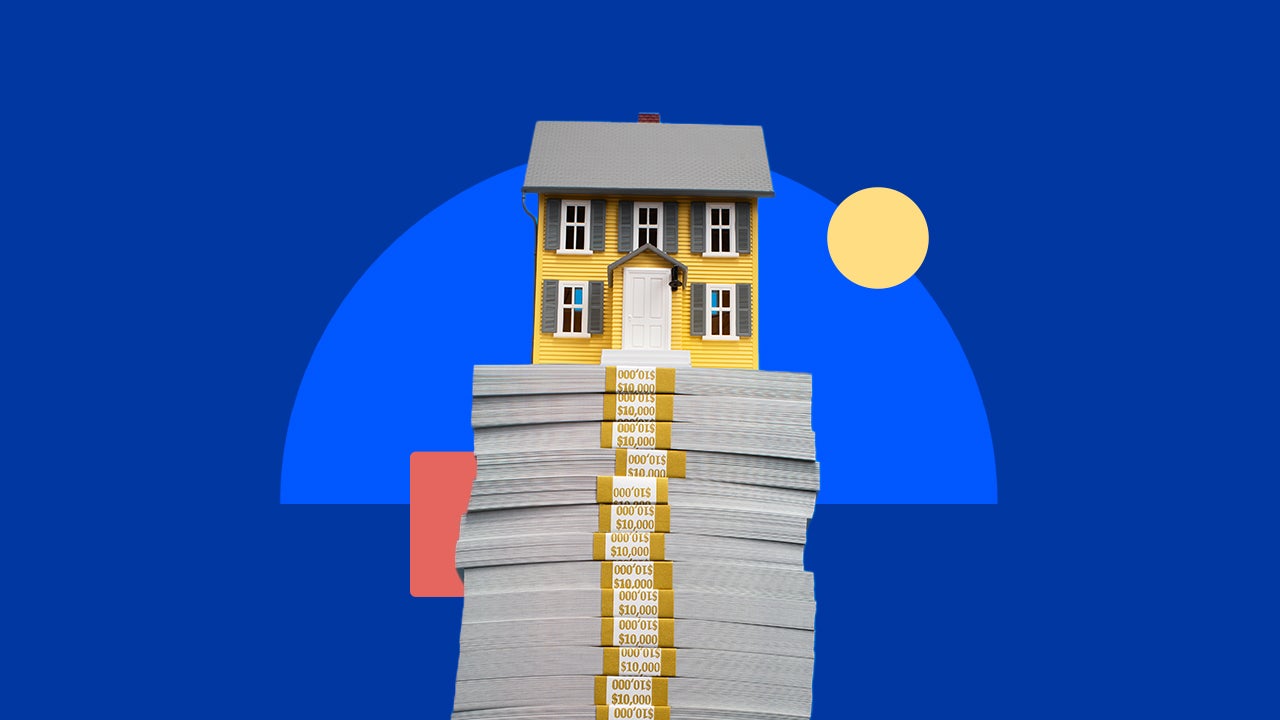How to compare lenders for first-time homebuyers




Key takeaways
- Finding the best mortgage lender means looking not just at their interest rates but also at their customer service, types of loans offered and fees.
- Ultimately, it’s best to choose the lender who offers what you need at the lowest possible rate.
- Mortgage rates for first-time homebuyers depend on the lender and the individual’s financial profile, but be sure to ask about any programs specifically geared toward first-timers.
One of the most overwhelming aspects of being a first-time homebuyer is finding a mortgage lender. It might be tempting just to go to the financial institution where you do your banking. But, while that’s certainly a good starting point, you’ll want to compare other options as well to ensure you’re getting the lowest possible rate and best terms for your situation. Read on to learn more about how to compare lenders as a first-timer.
Types of mortgage lenders for first-time homebuyers
To help you pinpoint the best mortgage lender for you, here’s an overview of the types of mortgage lenders you can compare:
- Banks: Banks offer banking, investing and loan products, including mortgages. You might opt to work with one of the big banks, such as Bank of America or Chase, or a local community or regional bank. With most banks, you can start the mortgage application process at a branch location or online. If you’re already a customer, you might be eligible for a discounted rate or reduced fees on your loan.
- Credit unions: Similar to banks, credit unions are financial institutions, but you often need to meet membership requirements to join. For example, you might need to live in a specific area or work in a specific industry. Credit unions typically offer lower mortgage rates for first-time homebuyers and more personalized service, but you might have limited loan options compared to a bank or non-bank lender.
- Non-bank lenders: Sometimes referred to as independent or non-depository institutions, non-bank lenders offer mortgages either exclusively or with other types of loans. Many non-bank lenders operate online and have quick turnaround times for preapprovals and closings. Some don’t charge fees, either.
- Brokers: A mortgage broker is not a lender, but rather an individual or company that connects borrowers with lenders. The broker compares multiple lenders and loan options on your behalf and counsels you on the best option — a valuable service for a first-time buyer. Usually, the lender pays the broker’s fee and then passes that cost on to you.
If you don’t know where to start when comparing mortgage rates and lenders, an online marketplace like Bankrate can help you identify lenders and rate trends without needing to hop between websites. If you see a lender you like, many marketplaces also directly connect you with the lender for next steps.
How to compare lenders as a first-time homebuyer
When comparing mortgage lenders as a first-time homebuyer, you’ll want to consider several factors. Loan products may look similar on the surface, but the details can make a big difference over the life of the loan itself — often 15, 20 or 30 years. There are several variables to compare, such as interest rate, fees and down payment requirements, all of which can impact your monthly payment by hundreds of dollars.
1. Decide what type of mortgage you want
Not all lenders offer every kind of mortgage, so start by determining what loan type you want. For instance, if you qualify for a VA home loan, you’ll want to narrow your search to lenders that offer — or even specialize in — these mortgages. And if you are hunting in a high-cost-of-living area, you may need to explore a jumbo loan. Knowing the different types of mortgages available, and which one best fits your situation, can help you make the best decision when selecting a lender.
One key distinguishing factor between loan types is whether you choose a fixed or adjustable-rate mortgage. Again, not every lender offers both types, so once you know which best suits you, you’ll be able to narrow down prospective lenders accordingly.
Learn more: 5 types of mortgage loans for homebuyers
2. Look at the interest rate and APR
The mortgage interest rate is the charge you pay for borrowing money, calculated and expressed as a percentage of the loan amount. The APR, which stands for annual percentage rate, includes the interest rate as well as other costs associated with the loan. The APR is almost always higher than the interest rate. Both percentages are listed on your loan estimate so you can easily compare costs between lenders.
3. Calculate closing costs
Your closing costs — extra fees and expenses that you pay upfront, on closing day — can vary based on the lender. Some lenders don’t charge an origination fee, for example, or might waive or reduce costs. Here are some common lender-related closing costs:
- Mortgage origination fee
- Mortgage points
- Application fee
- Appraisal fee
- Credit check fee
- Title search fee
- Processing fee
Be on the lookout for extra or inflated fees — it’s important to compare at least two lenders, and ideally three, so you’ll have a sense of what’s considered standard versus excessive for your area.
Like the interest rate and APR, closing costs are itemized on your loan estimate — but on this document, they’re only estimates, not final numbers.
4. Consider your down payment
The best mortgage lenders for first-time buyers generally offer specific programs that allow you to put less money down. For first-timers, lenders can often approve a loan with as little as 3 percent down. If you’re looking to buy without depleting your savings, look closely at the down payment requirement as you compare mortgage offers.
5. Determine if you need mortgage insurance
First-time buyers may need to pay for mortgage insurance, which covers the risk associated with financing their loan, if they put down less than 20 percent on their home. In the event you default on your mortgage payments, your insurance premiums will cover the lender’s loss (though not your responsibility as the borrower).
Depending on the type of loan you get, your lender may or may not require mortgage insurance coverage. The policy — and payment — will generally remain in place until you reach a certain loan-to-value ratio on your home or reach the halfway point of your mortgage term, whichever comes first.
Two of the most common types of mortgage insurance are private mortgage insurance (PMI), usually affiliated with conventional mortgage loans, and the FHA-specific mortgage insurance premium (MIP). Both involve a monthly cost that is typically wrapped into your mortgage payment; MIP also includes an upfront cost that is due at closing. Also, MIP is in place for the lifetime of the loan if you put down less than 10 percent.
While these considerations all focus on cost, choosing a suitable mortgage lender also means selecting one that meets your needs for payment flexibility and customer service. And keep in mind that there are a number of programs — some only available through specific lenders — geared toward first-time homebuyers.
Questions to ask mortgage lenders as a first-time homebuyer
Once you know the exact costs for your situation, you can start comparing other important factors. For example, you might ask:
- What paperwork and documentation do you need to get approved for the loan? There are many personal and financial documents needed for mortgage preapproval. Get an idea of what’s needed at the front end of the process to optimize your chances for preapproval.
- Can you go through the mortgage application process online or over the phone, or do you need to visit a location in person? For some people, getting to a brick-and-mortar banking branch during business hours may be inconvenient or even impossible. Conversely, some may prefer to meet with their lender face-to-face.
- Does the lender offer any first-time homebuyer programs? These can make your purchase more affordable, both at closing and over time.
- Will the lender work with you if your credit isn’t up to par? Buying a house with bad credit may be a tough road, but it’s not impossible. Ask your lender if there are options available for borrowers with less-than-stellar credit. (But be aware that a more flexible loan often comes at a price.)
- Does the lender allow you to lock your rate? If so, for how long and how much does it cost? Though not always necessary, a mortgage rate lock can be a solid move in certain market conditions.
- Can the lender meet your closing timeline? If moving on a schedule is necessary — say, to align with the first day of school or the start of a new job — be realistic. If a lender cannot close on the timeline needed, it may be best to explore other options.
- Is the lender easy to get in touch with? There will almost certainly be a lot of back-and-forth during the loan application process. The last thing you’ll want to spend time doing is playing phone (or e-mail, or chat) tag with customer service or your loan officer. Ask about what communication methods are available, on what days of the week, and at what times of day.
- Does the lender answer all of your questions to your satisfaction? Don’t be afraid to ask lots of questions — they will likely have plenty in return. Remember that it is the lender’s job to earn your business, even though you are also seeking approval to borrow.
- What have past customers had to say about their experiences? Check out lender reviews to see what benefits and complaints borrowers who’ve gone before you have to share. If you encounter negative reviews that repeat common concerns, it may not be a coincidence.
- Are there any special perks to working with the lender (for example, a free credit repair service or down payment savings match)? If you encounter multiple lenders with the same loan terms, these extras may be a deciding factor.
- Does the lender offer refinancing or home equity products? Down the road, you may want to tap into your home equity to pay for repairs or even consolidate other debts. Being able to stay with the same lender can be a huge convenience, so if you anticipate leveraging your equity in the future, this may be a consideration for you upfront.
Learn more: Questions to expect from a mortgage lender
Bottom line
With so many mortgage options out there for first-time buyers, diligence is key when searching for the best mortgage lenders. Take your time comparing multiple lenders to learn their loan offerings and rates, and ask questions about what you can expect from the experience. Look for the lender who gives you what you need at the lowest possible rate.
FAQs
Why we ask for feedback Your feedback helps us improve our content and services. It takes less than a minute to complete.
Your responses are anonymous and will only be used for improving our website.
You may also like

Best FHA mortgage lenders in 2025

How to find the best FHA mortgage lender

How to choose a mortgage lender: 5 tips

